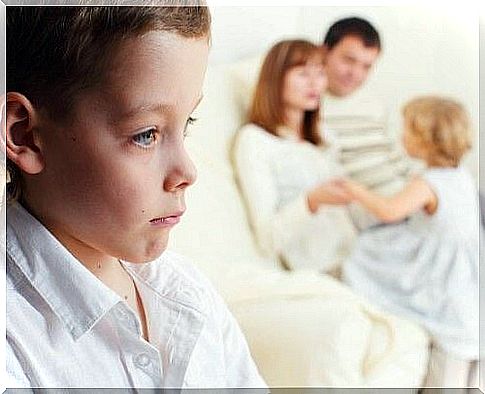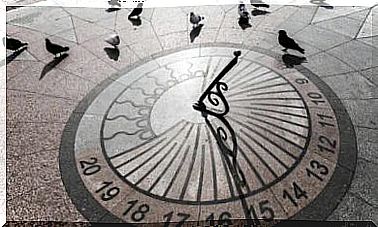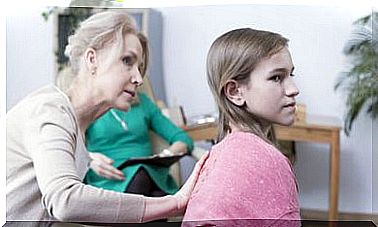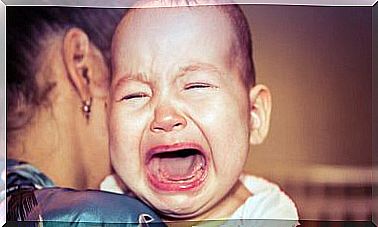Dealing With Children’s Jealousy
Children’s jealousy is inevitable and absolutely normal. At some point in childhood, whether due to the arrival of a
little brother
, by changes in the family structure or by going through the affection phase for one of the parents, the little ones experience this feeling. But how to deal with jealousy in children?
Clearly dealing with children’s jealousy is complicated because it is a contradictory feeling that manifests itself more virulently the more they love the attachment figure and, in parallel, the more abandonment is perceived on their part.
Children’s jealousy is a natural feeling when they feel out of place, so they express their hatred and rejection to those people who love them. In this article we will show you how to deal with situations that cause problems.
jealousy
of children.
Children’s Jealousy: How Does It Originate?
Children’s jealousy can be generated by several factors : the arrival of a new sibling in the family, when another child calls their parents’ attention, when the head of the family.
single parent
has a new partner, or when the baby has to share the father or mother’s love during their courtship.
In this way, the children see their physical and emotional affection for their
to parents. In other words, children see the constant support and care they need during the first years of life at risk.
That is why when a situation or circumstance involves a reduction in the time, affection or devotion of their parents, jealousy arises in children. Simultaneously, the child feels compelled to compete for the affection that until now had been granted exclusively to him.
At what age do children’s jealousy start to show up?
Jealousy can appear at any age during childhood, but the demonstration is different. When the child is less than two years old, these manifestations go unnoticed because the little one will appear submissive, obedient and excessively affectionate.
But as children grow, the
childish jealousy
begin to externalize in a more exaggerated way, that is, by sudden aggressive behavior. Even from 5 years of age, they can emotionally manipulate by withdrawing the affection from those who have “abandoned”.
How do children’s jealousy manifest itself?
Children’s jealousy often manifests itself through aggressive behavior: hitting,
to bite
, pinching, are some of the techniques used by little ones to express the fear and anxiety generated by competing for the love of their parents.
However, it may happen that children resort to behaviors that call their parents’ attention, for example, expressing themselves only with screams,
hit
objects to make noise, to do what is prohibited or disapproved at home, to provoke the anger of the elderly, etc…
Other manifestations of childhood jealousy
- Unjustified mood swings.
- Frequent crying for no reason, accompanied by a confession of not feeling loved.
- Emergence of new unusual behaviors (urinating, lack of appetite, etc…)
- Regression with an involution in language and body language (sucking the thumb).
- Changes in sleep stages (insomnia, nocturnal awakening, etc…)
How to deal with jealousy in children?
The first step in dealing with children’s jealousy is to know what is causing it, which changes our attitude towards their jealousy. Because that way it will be possible to put ourselves in their shoes and understand that we are facing someone who is helpless and vulnerable.
At this point, it is essential to distinguish between the sudden appearance of jealousy in children and that of a jealous personality. In the first case, the appearance of a new element occurs in the child’s life, while in the second, the child has some predisposition to suffer it.

Therefore, many experts recommend that children be allowed to express what they feel whenever they do it correctly and without causing harm. The ideal is to get closer to your child so that he knows that we understand him and that there are other ways to express himself.
However, experts advise seeing a professional if episodes are prolonged or if the child’s reactions are excessive to the point of damaging family relationships.
Other Tips for Dealing With Child Jealousy
- Establish a balance in dealing with your children so that no one notices preferences or does
comparisons
. - Let praise for their successes prevail rather than rebuke for their mistakes.
- Invest more time in family activities and games to strengthen bonds.
- Be calm in the face of children’s jealousy. Express your disappointment in his behavior.
- If jealousy is caused by a younger sibling, remind the older one of the small perks and privileges of being older.








